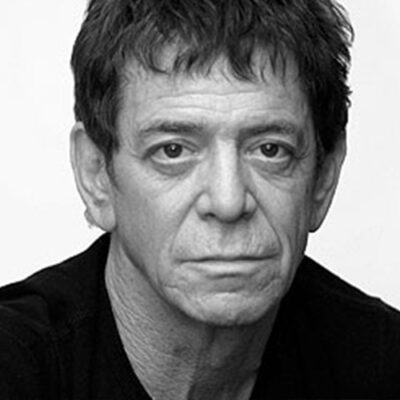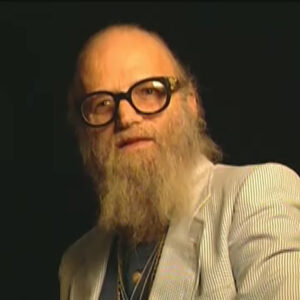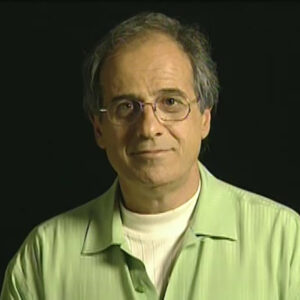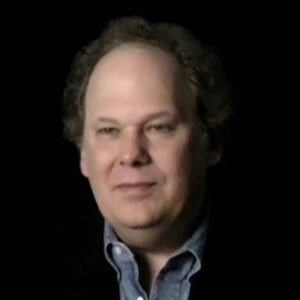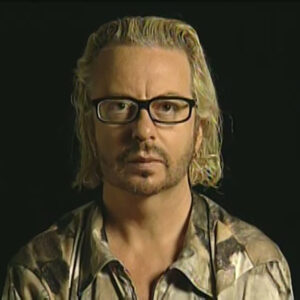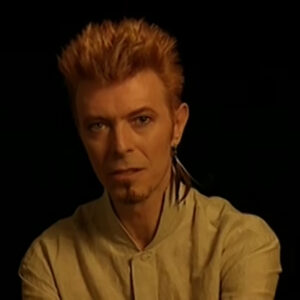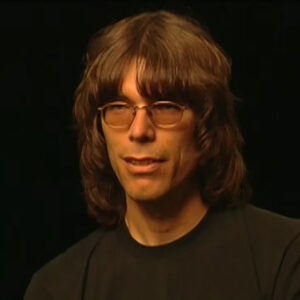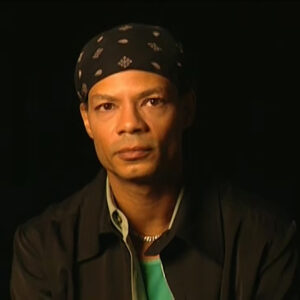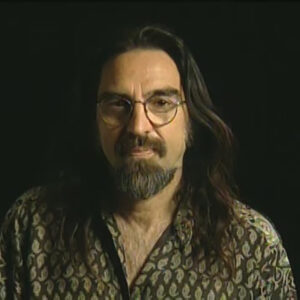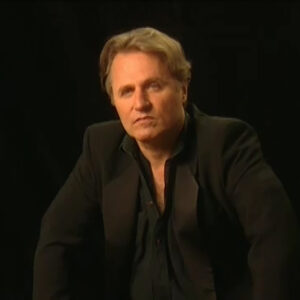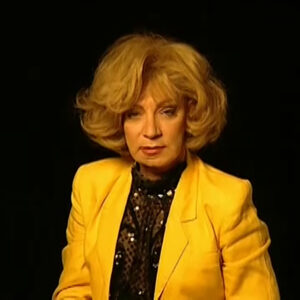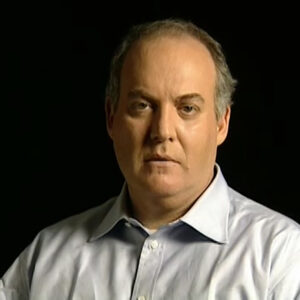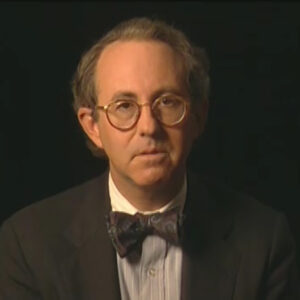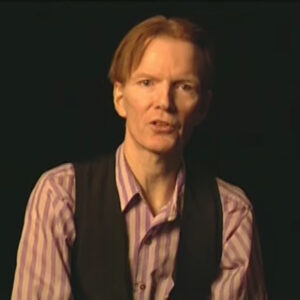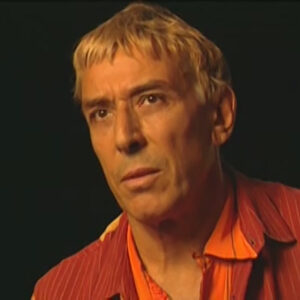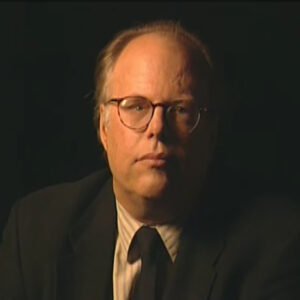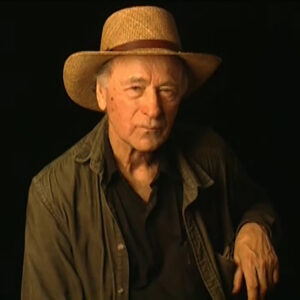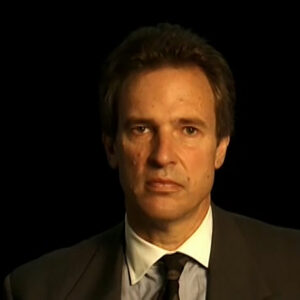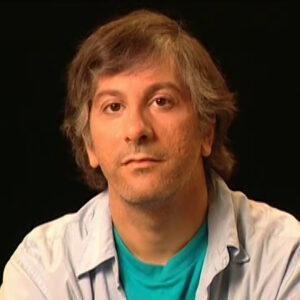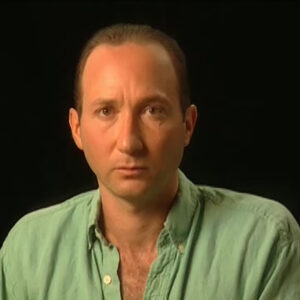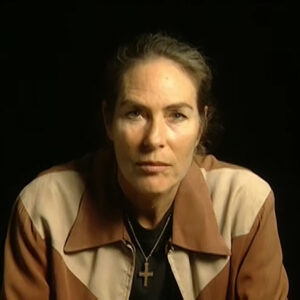Mick Rock: I’ve I’ve it’s interesting now I look back at the book because I have things in a certain order, but I actually believe that I first met Lo the night I shot the Transformer cover. I remember being with David Bowie and going backstage to say hi. For a while, I thought I met him. That was the second or third time, but I actually believe that was the first time I met him. And then I went out. And then that shot came out of that performance shoot. I mean, that was. Most people don’t realize it, but that was a live performance photograph that I got him in a certain. If you actually there there’s another cover shot a couple of days later for a guy called Iggy Pop called Raw Power in the same location. And he’s doing exactly the same thing as Lou. I caught him in a moment where he’s looking away. When there’s a pause, when the instrumental is going on and he’s not actually singing. And so they’re very much a pair for me. The difference with the Lou Reed one is it fell out of focus in the printing. That’s where you get that effect that you were talking about on the phone the other day. And. That’s and it just worked, showed it to know and he loved it. And that was it. It’s haunted me all these years and him.
Interviewer: Well it’s a brilliant image and really.
Mick Rock: It looked really it looked really decadent. Obviously it was something about that decadent look that seemed to suit is the aura that he carried at that time, one which he complains about a lot now, but the whole like deviant sexual drug thing. Of course, that’s not what he’s so funny nowadays about that. Talking to him about that, and he hates to talk about all the sex and drugs thing anymore. He wants to talk about truth and compassion and the big things. But, of course, journalists still want to know about his salacious youth so. Which was an interesting youth, definitely. I mean, Lou was a wild man by any standards, without a doubt. So that was how I first met him. And.
Interviewer: Can you set the stage for me of where that was?
Mick Rock: Backstage. I’m sure. I am sure it was. I know. I remember seeing him backstage, but I was thinking on the way here, that was actually it. David took me back to see him before he went on stage for the concert. And that was our actual first meeting in London. Yes, it was. I’m. Well, I’ve only been to America once before in 1970 so. Yeah, David’s manager, David, had a big thing for Lou. And that’s how David and I first connected in our early conversations was he knew Lou Reed and I knew Sid Barrett was the man who started Pink Floyd. And that was very much. And so David, I think, saw himself as being part, Syd Barrett, par Lou Reed. That was what he was sucking on at that particular time. And anyway, that’s why I met Lou. And then I would see him a lot at that time. I actually um wrote would write little pieces in those days for magazines and also for Rolling Stone magazine. And I was spending a lot of time with him doing an interview with him for Rolling Stone magazine. I mean, in those days, if you were working in the music business, you didn’t get paid very much for taking photographs by anybody, whether it was a cover or it was a it was for a magazine. So I would augment things by doing interviews. And that was the first thing I think I had published on Lou, was was for Rolling Stone. And then that’s those pictures he’s dressed in this very flowery outfit. I believe he only actually wore that on that one occasion. He had been embraced by David in such a way that he was caught up in the glam thing because Lou is naturally New York punk shades leather downtown. And then he obviously, he got very caught up with David and what was going on that moment in time in 72 and 73. And for one day, Dave, persuaded him to wear this very un-Lou like outfit is very florid looking thing that was made by David’s personal designer, Freddy, Little Freddy. Cute little fellow. Was. And I told him Lou wouldn’t be seen dead with after. But I got these great pictures of him in it all with the nail varnish and the very I don’t know what he was. He used to look like a at that moment in time where he was he had he had, after all, a certainly in certain areas and in London, a very hip underground following. But he had not any real national, international recognition on any real level, and that came as a result of his collaboration with David, which was a Transformer album for which I did the cover. And of course, the Walk on the Wild Side, which as. It’s still the thing that people think. First off, they think they can walk on the wild side and they think of that picture even though Lou’s many years beyond that. But it did seem to define him in a certain way. And then after that, I would see Lou, I would say I saw him in New York and spent some time with him that winter when I came over to tour America with Barry. At the end of it, I spent a while in New York and would hang out with Lou. And I just remember, Lou, as being very personally very kind to me. I remember in New York, he was very he would take me to all these wild places and he be very protective because I was still I thought I was pretty on the money. But in truth, you know, I was a Londoner. London was pretty tame compared to New York. So low would take me to these different clubs. And he would be a bit like and they would be of all kinds of natures, these clubs. And he’d be very protective of me. He saw me as being a bit of an innocent, I think. And by New York standards, I was. And then I saw him the next time, I think. I don’t think I saw him maybe for about 18 months. He’d gone through the Berlin period and he had the record have been made by then because he’d never been to Berlin. And then I next saw him in London and he came and he had his blonde hair and he looked like Marlon Brando from the Young Lions. That was. And I did a lot of pictures of him. I think he was in twice. Maybe he came in. He did. He did a couple of dates in London. We spent some time. Then he went to Europe and then he came back. And so I have all these amazing looking pictures of him looking very, very blond and very skinny and. He, uh, and, uh, the next time I probably saw him in America, finally after a lot of turn frying and I’d shot a couple more album jackets for him, like Coney Island Baby. The one with the with the top hat and.
Interviewer: Tell me a little bit about that album. Where that was shot and.
Mick Rock: I had a studio in LA in London and Great Newport Street where I shot, for instance, I shot the Queen cover with the Mai Mai Marlena Dietrich knockoff. And this was these. Those pictures were shot in the same studio. I believe they were actually shot in 75. They were shot. We shot this because we wanted to do a session. They weren’t necessarily shot for any particular purpose, but then they got used and then the record Coney Island Baby, he recorded and he decided that’s what he wanted on the cover. And that was an intense session. We got a lot of a lot of different material out of that. And then all around that time, there was the whole thing with John Cale and Nico. The night that Lou, who would stood because Lou has a wonderfully dual nature. I mean, like most people with Lou, it’s particularly pronounced the duality. And so on the one hand, he’d be like rejecting the Velvet Underground. And on the other hand, I remember the night where he wanted the scheme to get Nico and John Cale, who were both living in London at the time together for a picture. First I got Lou and Nico together, at Blakes Hotel, and we did some some really very interesting pictures in one or two, which are very sad looking. I mean, there is one in particular that’s in the book. And he. After we’ve had a I didn’t if I didn’t, I mean, I don’t recall eating very much with anybody in those days, but maybe we went to a bar or something and then she was supposed to come with us over to visit John. And for some reason or other, she it was her husband at the time, a guy called Gene Krell, who was the owner of Granny Takes a trip. One of the owners of Granny Takes a Trip in the world’s end in London that shop later became Sex, malcolm McLaren’s shop from where the Sex Pistols came and Gene and Nico were I don’t want the right word would be without giving the game away, but they were in a certain state of consciousness and I remember Lou very ticked off about it anyway and very ticked off with Gene. He wouldn’t talk to Gene. And then so we went over to John’s and I took some more pictures of the two of them acting very strange together. Yes. And later that night, we went back to Blakes. And he I remember Nico calling up and Lou would not talk to her. So.
Interviewer: You’ve done so many album covers. This is great, Nick. Perfect.
Mick Rock: Well, you want a bit about walking 80 blocks of New York in the snow with Lou in the middle of winter?
Interviewer: Whenever you refer to David a couple of times, say David Bowie.
Mick Rock: OK.
Interviewer: But the world doesn’t it’s David.
Interviewer: Right. So what was I going to hear? Just didn’t have him.
Interviewer 2: Probably make that comment that David Bowie began. Very early on you were talking about how you were introduced to Lou..
Mick Rock: …by David, how he took me backstage at the concert. Yeah. Oh, his. He had he knew Lou Reed and I knew Syd Barrett. That was it. We were both.
Interviewer: Just do it again but say.
Mick Rock: Yes. David Bowie. Okay. Yes. Yes. I remember when I first met David. And again, I, I think very early on I was doing interviews with David and we found that we had great common ground. David Bowie and I. Which was our respect for 1. Lou Reed, whom he knew very well. And 2. Syd Barrett, whom I knew very well. And certainly David Bowie at that time somehow was an amalgam of those two spirits with a bit of Marc Bolan thrown in. David was a great collector of people. And Lou Reed was his prize prize piece. And Lou had just flown in from New York. I believe only a day or two beforehand. And David grabbed me that night. Kings Cross Cinema it was. Which was converted to to a rock and roll venue and took me down to meet Lou and before he went on stage, we went back and David, as was his wont, was very good at giving praise and pumping people up. I remember him going there and telling Lou how fabulous he was and how thrilled he was to see him play. And then that was the concert I shot the Transformer cover.
Interviewer: So you shot from the audience.
Mick Rock: Yes.
Interviewer: Can you talk about that just very quick?
Mick Rock: Yeah. I mean, I don’t. I shot. I shot some. The way I would shoot in those days would be, because it’s a lot of years since I’ve shot concert stuff, but it will be to shoot some with available light and then some of with a flash. I’ll have two cameras, one of the flash on it and one with available light to get two different kinds of feelings. And this was one shot without the flash. So it was a very grainy picture. And I suppose I would look a lot for a portrait. Not all. I would either look for the action or I would look for a portrait. And this obviously was a portrait because a lot of people don’t realize it’s actually a live photograph, although you can see quite clearly the microphone in the picture if you look. And I don’t recall I mean, really talking about 25 years ago to remember too much about that, other than the fact that it was very hot that I remember. For instance, I have a lot of pictures of Lou, where you can see it’s very white Kabuki style makeup is running. And I remember this being England, that the air conditioning was not good because air conditioning is still a relatively new thing in England. That’s one thing I remember. And he had a group called the Tot’s, which was a Long Island band that he picked up just for that. Who were competent, but I don’t remember much about them because I was just there to see Lou Reed.
Interviewer: Was Bowie had already produced Transformer at this point.
Mick Rock: No, he hadn’t.
Interviewer: So before that?
Mick Rock: So it was before that, yes. It was during that whole visit that he produced Transformer. But he also did was um was he produced the he was in the middle of the Mott the Hoople album All The Young Dudes. And there is a track on it called Sweet Jane, which is from Lou’s Loaded album. And are in somewhere there is Lou’s guide track for Ian Hunter. I remember being there when Lou did the guide track. That was before and then when that was finished. David and Mick Ronson, who worked closely with David throughout that period in all his production and arrangement um then they did a Transformer. So I heard a lot of material that night at that concert, which I was not familiar with. In fact, no one was familiar with because he had not yet recorded the album.
Interviewer: Can you talk a little bit about you’d done, God, it looks like at least five album covers for Lou. Transformer, Coney Island Baby…
Mick Rock: There was Sally Can’t Dance, the shot on the cover is a drawing based on my photographs. It actually is credited and I was paid for that. And that would have been in seventy four and seventy five, I shot what became the Coney Island baby cover, which actually did not come out till 76. Also in 76, he moved from RCA to Arista and recorded an album called Rock and Roll Heart and he flew. He had a thing with video, TV’s and video cameras, and that’s why that particular shot is actually a still frame from a lot of video that I shot with Lou, because we put together a whole set of images and figured out this a way of of connecting various tapes in such a way that I could stand at the side of the stage and connect them in to certain, so you had 60 TV sets you could four here, four here, four here, four here, four here would have one image and that four here four four here would have another image. But that I did a lot of the work. But the primary but the primary idea was Lou’s. He knew what he wanted as always.
Interviewer: And that was the…
Mick Rock: The rock and roll heart. That was 76. Yes. I mean, there were two issues here. One is the album cover, which was based on. Yes, I have. Which was actually I shot a still frame out of the. I mean, you didn’t print out from video in those days. You would shoot it from the screen. And then. That still was part of a whole load of video tapes that we’ve made up, some of images of, Lou, and some just that this wild feedback stuff that Lou is obsessed with at the time. I mean, this is seventy six. Remember, not so many people had video cameras then. Lou was. And as much as I made a major contribution towards it and got plenty of credit, this was entirely Lou’s the this idea. He knew that whatever it was, he wanted 60 TV screens back there, which was I remember going, why uptown? To find on a search mission to find 60 TV shows we could get for a reasonable price that would be reasonably sturdy the travelling purposes. And that was a pretty wild tour because they were always breaking down every place we stopped we’d have to run out and try and find some with new TV sets. I know we started out with 60. I believe at the end we actually trundled back into New York with 36, but that accounted for a few replacements that I have a lot of shot, a lot of stills of that. So and again Lou was as usual, was well ahead of things because I don’t recall I mean Bowie was doing a lot of theatrical stuff of course, and Alice Cooper and various other people, the Floyd had there had their light shows, but I don’t recall anybody actually having TV sets there I think Lou had been inspired by and Nam Jube Paik in fact, I think that’s where that came in. Lou’s cultural references always being a lot broader than the average rock and roll person, because Lou comes out of a very literate background. I mean, for me, if you wanted to call Bob Dylan, the Rimbaud of rock and roll that, I think clearly Lou Reed is the Baudelaire of rock and roll. Certainly because of my own background, I was I studied modern languages at Cambridge and I was very steeped and all that, not only the the work itself, but also the idea of mad French drugged down sex crazed bohemian poets. And Lou, of course, you know, nicely epitomized all that for for my generation. I mean, he was about as perfect as if he got. So. You know, I had ideas about Lou before I ever met him, and I must say familiarity with Lou Reed never did take away that particular aura for me. Which, of course, he still has, although he doesn’t work it the way he used to work it. It just strolls around with even though he’s got the stick on the shades and his way back there. Seventy six. Yeah. He flew me over. I do remember there’s a couple of particular things I remember. I mean, there’s many things. Certain things. Certain things I don’t think I should talk about on camera. But a couple I can talk about. 1. I remember one night. I don’t. He was in a state of particular agitation and he said it was in December. It must have been after the tour was actually over. And he said to me Mick, let’s go for a walk. So we went for a walk. It was snowing and it was very cold. I mean, neither of us were dressed that warmly, but I afterwards figured out we finally we walked to about 80 blocks of New York at a hell of a lick because Lou could move in those days. And so I’ll never forget that I never worked 80 blocks of any city anywhere in the world in mid-December and the snow and the freezing cold before. But with Lou Reed, I experienced that. And the other thing was the dachshunds. The Baron and the Duke. These miniature. Well, one was one was. He had the first one. I think the first one was called the Baron. This was a miniature dachshund. And Lou loved this dog. This dog really had the run of his apartment. And then he remember the day came, he thought that the that the baron was a little lonely and needed a little play pal. So he wanted to get another dachshund. So we went down to the local pet store. It was somewhere very close by. I mean, probably where he too, where he bought the dog. And we found the Baron. The Baron was purportedly another miniature dachshund. And I have pictures that he was at the time. He was, oh no, don’t let them be published because he looks so well. He’s so holding this little dachshund so gently. I mean, Lou really is very sweet with animals. I mean, Lou, it doesn’t have any animals these days, but I know he has a big lust for my Maine Coon cat. He’s always talking to me about Fang, but I have these very tender pictures of him holding this teeny little dog that are really amongst the sweetest pictures of ever taken below, but Lou definitely not make the moment to publish them at that time because it would have sort of blown his image. But anyway, the upshot of this miniature dachshund was he got it home and the little thing kept growing and growing and growing. They palmed him off with a regular dachshund. I remember him complaining about that because he paid for a miniature one and they’d slipped him. It was like, you know, it was a drug dealer who palmed you off with bad drugs. But actually, it was a very nice dog and Lou grew to love him. So there was the oldest one, the Baron was a little guy. And then the Duke the baby was was the big guy. And that was all I did, another cover for the Walk on the Wild Side was a compilation album of his solo work up to that time, and it was called Walk on the Wild Side:The Best of Lou Reed.
Mick Rock: Yes, well I’d I been in New York a little while myself and was not so innocent in New York Sense anymore. And I was in a fairly extreme state myself. I remember when Lou called me and Lou was calming down a bit. I had revved up quite a lot. And Lou was coming down. But notwithstanding that, he got me to shoot “Growing up in Public,” I remember. He nursed me through that one because I missed meetings with the manager, with the record company oh dear. But Lou was very understanding. I remember he held my hand through that because after all, he himself had put people through a lot of changes at different times by his failure to show up for meetings and the like. And of course, then, not so very long afterwards was his wedding. And I had probably not slept in well, it could have been a year by then, but it was certainly not that week. I remember. And I was supposed to go along and I think he I don’t think he totally relied on me to shoot the wedding, but of course, he wanted me there as a friend as well. And I have been out on some whole other escapade and had gotten up very late. And I missed the wedding. And when I got to the studio, it was very quiet. It’s very typical Lou message. Hello, this is Lou. You missed my wedding. Goodbye. And we didn’t speak for a number of years after that. As you read about in the book. But in the interim years, I finally unravelled. What particular pursuits that I had been undergoing for that period. And we became friends again. Sadly, I’ve got a lot of very interesting pictures of Lou, which will probably never get published. And that’s. I think he’s always telling me you have such integrity. But, of course, I actually don’t publish anything like that of anybody, you know, very sensitive to that. And I like I like all the stuff that I don’t publish a lot more than the stuff I do publish.
Interviewer: The blue mask then was actually.
Mick Rock: Was actually a “Transformer”. Yes, The Blue Mask, I remember, must have been. Mm. Must have been his wife at the time, Sylvia, calling up. And when would that be. 81, 82. 82, yes. Saying they had wanted to use the Transformer cover again in truncated version. And I got paid so much more money that time than I ever did for the original. The original I think I got about 150 English pounds. This time round. Ten years later. Well, I got a couple of thousand and I was happy with that at the time. Of course, that shot is worth a lot more than that now.
Interviewer: Can you talk about that, I’m sure it’s your picture. The one of Bowie and Mick Jagger.
Mick Rock: Oh, the kids are.
Interviewer: Says his name places I think it was a farewell party.
Mick Rock: Yes. Well, yes, it was. David was full of very melodramatic gestures.
Interviewer: David Bowie.
Mick Rock: David. Sorry. David Bowie. Yes. This was the it wasn’t quite the end of Ziggy. But this was the la fin du Ziggy. This was the final Ziggy Stardust concert. And I remember when David came up with that, he was looking for another David, who was always very Bowie, who was always very attuned to to the power of publicity and promotion. I mean, David was probably the hippest person I ever met in that sense. He wanted to make a dramatic gesture. So he decided, OK, this is the last concert I’m ever going to do. Of course, what it turned out to be was the last of Ziggy Stardust concert he ever did. Obviously not the last one he ever did. And there was a big party afterwards at the Cafe Royale. It’s on Regent Street in London. And I know Ringo was there. And Jeff Beck and Mick was there. Was Keith there? No, I don’t think Keith was there. And Lou and no no Iggy. No, Iggy wasn’t around at that point. Iggy had been. There were two parties. One was the one in 72, which was at the Dorchester Hotel, which was a press thing for David before his American his first American tour. And that’s where I got the famous picture of Lou, Iggy and David. And Iggy is wearing the Mark Bolan T-rex t-shirt. So, of course, there’s a whole story that the whole Mark Bolan, and this is about Lou Reed and not about David Bowie. And then the other one there was have a lot of pictures. He did have there were two barbers in his life. I remember he he he he was he had been married in 72. So I believe he was. I don’t I don’t know if he was still married. That marriage didn’t last very long. He also had another lady friend called Barbara Hodes. But that’s not either of them. In fact, Lou asked me who it was because he thought it was Angela that he’s he’s kissing. I have some great pictures of Lou dancing with Mick Jagger. Looking definitely doing all the moves, looking very entertaining.
Interviewer: So if you can set the stage.
Mick Rock: Yes. This was the la fin du Ziggy. It was it was the last concert. This was a very dramatic moment. He had David Bowie had declared that he would never perform again. And this was the party to celebrate the fact that he was never going to perform again as well as it transpired. He never did as Ziggy. And the party that the main attractions at that party were certainly Lou, David Bowie and Mick Jagger and Angela Bowie and Bianca Jagger. They were very much part of it, too. And there are there’s a whole cluster of photographs. I’ve got of Lou Mick and Bowie all hanging out, drinking, talking at the table. There’s one particular one where they’re all they’ve all got their arms around each other. And that’s the famous one. There is another shot. And I’ve heard one or both of them denied what’s going on. But I just I the Lou and David are about to kiss. They’re a fraction apart at some revisionist moment in history. I think maybe David and Lou were talking to each other, one of them tried to say that they were actually going to whisper in each other’s ear. But I saw them kiss. It was a kiss. Whether Lou acknowledges it or not, it was a kiss. And I have them just a fraction apart. And that is also in that book. But that was yeah, that was one of the great rock and roll parties of all time. Not that there are loads I have never been to. But I think by general consensus, it seems to get that blessing. And partly it was because of that particular moment in time was it was so significant. And.
Interviewer: Can you say again where it was and the year again?
Mick Rock: Yes. Nineteen seventy three. It would have been the summer would have been just before David went to France to record Pinups. And it was the last Ziggy Stardust concert which had been at hammersmith Odeon in London, then everyone had repaired to the Cafe Royale on London’s Regent Street. And that went on all nights and all kinds of shenanigans going on because that was 1973 and we were all young. Why not? And. I tell you one thing that struck me more recently about. I remember he did that concert with Bowie at the beginning of the year. And remember having dinner with him just after that. And he. And I’ve heard him say this many times over the years. He was always surprised at how much people love his work. He was really surprised at what incredible reception he got that night. And that is very typical of Lou, even though Lou is well aware that he has been endowed with some fabulous, unbelievable sensibility and the ability to translate that sensibility into forms that appealed to, shall we say, the more intelligent members of our generation and of other generations and of the generations of come after. But he’s still away surprised that people love him so much. And that struck me again. I thought, wow, after all these years, he’s still you’d never know it to watch him perform in the way. But in his heart, he’s he’s very humble about the way he affects other people. And he talks about himself, you know, about Lou Reed and then the person who’s living the life over here the monster? The the the monstre sacre that he is that Lou Reed is although Lou himself is. Lou has been very kind to me personally over the years. And one little thing I would like to say is that when I was in hospital not so long ago, to have some very heavy operation done, when I came out of the intensive ward ward that was put into an interim ward, the first flowers to arrive were actually from Lou. Was very beautiful roses. They were purple and mauve. And I remember that because I was I had been given large doses of morphine and in floated these flowers. And I thought I was in a Yukio Mishima novel. There was something very Japanese about the whole thing. But his were the first to arrive. I did get many but Lou’s were the first. And he’s very thoughtful. Is he has to I mean, I have seen all kinds of signs and I remember watching him with a particular guitarist in the seventies, and he is a terror with guitar players. I mean, he and of course, he has acquired that reputation over the years. He absolutely tortured this poor guitarist one day. I don’t know what he’d done wrong. Maybe he played too well or too tastefully or whatever it was. But I am Lou’s big thing always was that he did not. He got all this recognition. Everybody thought it was fabulous, but no one talked about his guitar playing. And that was probably to this day, still his biggest life is that nobody understand. And of course, it’s true. I mean, he’s the he is is a great guitarist. Not in the sense of a Clapton or Hendrix. But he is a very unique guitar player. And the other one, a more recent story of him going out for dinner with him and leaving the restaurant. And this is very Lou because he has a particular view of journalists as we left the restaurant, I recognize a certain gentleman who was a journalist. I mean, more than just a journalist. He owned a very prominent Rock and Roll magazine. And it’s certainly quite a well-known gentleman in his own right. And Lou asked me who it was as we walked out of the out of the restaurant. And I told him and he went off. He said a journalist. And he spat in the street in very dramatic way. I remember having to leap quite far to get out of the way of it. But anyway, he’s that’s such a wonderfully rich personalities. I’m sure you found out this is it’s this. Well, he’s just a very unique man and he’s a very wonderful man. But he’s wonderful in a very human way. And he can. It’s been a privilege and a pleasure to have known him all these years. You know, notwithstanding the years in between that we didn’t talk. I remember I’d still go to some of his concerts. I still slide in there just to check him out, just to see if he’s still at the magic. And of course, he always did. And on that note, unless there’s any more you want to ask.
Interviewer: Is there anything else you need to say a word?
Mick Rock: That’s an interesting. Oh, I do remember the acting I took him out to buy The camera that he got, at least I believe, is you. He’s got the Andre Agassi rebel, hasn’t he?
Interviewer: Now he’s using the.
Mick Rock: But I remember he got me a couple of years ago to take him out to buy the camera. So because he wanted to shoot some stuff from the from his apartment, from the balcony there.
Speaker But I do remember many years ago, a gentleman called Tony Defries who managed David Bowie and Iggy and nearly managed Lou Reed. But course Lou Lou would go through managers like crazy in those years. He I rememeber him chatting to me one day about because Bowie had this burning ambition to act. And he said to me, you know, he said. In my opinion, he said, Lou Reed just stumbling through the frame would be much more exciting than watching David Bowie and now that’s neither here nor there. You know, who’s to value? Who is and after all David has done a lot more acting. But it was an interesting point to make at the time because this was 1972 and certainly Lou Reed, well, other than acting Lou Reed, he he’d certainly never done any films. So, Tony Defries or be a bit of a bandido in his way, still have certain prescient powers. And he saw, Lou, stumbling was probably the right word in those days. But the fascination, how Lou could fascinate people just by moving around, not really saying very much. He does have that very unique. And certainly I’ve found and I’m sure you have to take photographs of him. He’s he just has a very unique aura and something that he is not he doesn’t spend too much time thinking about month attach too much importance to and refuses to be too drawn into. But on the other hand, he loves it when it’s happening. And I think he’s one of the great rock and roll as far as photographing. I mean, there’s you know, there’s a few of them, but there’s probably none better or more fascinating to photograph than Lou. Iggy ranks up there and so does David and so did Syd Barrett. But he’s. Anyway, he’s just to the amazing thing about Lou Reed is that knowing him as well as I did back in the 70s is he’s still alive and he’s in very good health. I mean, that’s. And he’s very smart about his health. And I’m very smarter than I was. It turned out in the end to be true. But he. I’m very happy to say that because I’ve got my own more advanced stage. I’ve come to realize there’s no point in being a dead legend, you know? And Lou is very much alive and well and clearly will be for many more years. But, um, yeah, as far as acting is concerned, I just suspect knowing, Lou, it’s something he’ll only ever dabble in. It’s not cause he’s the thing he loves to do is to write his songs. I know that that is the thing. Above all, because of his talk to me about how how how well he how he channels basically he channels all his songs. That’s the probably the only word you can say. He opens himself up and the songs will find their way into his nervous system. So he can because he is an incredible and credible writer. I have a big wad of his before from the seventies are not all of which made it into that collection of poetry that Hyperion put out that he one thing that struck me very early about Lou was even in a more classic sense, nobody wrote as well as Lou Reed. That’s part his education, I suppose. But obviously, it’s so so just because he’s he’s gifted in that way is. And round the last album, he was going to put in a piece which was like that. He showed me it never made it on the album, which is like a Chinese. Maybe you saw him show the show and it’s like it’s like those Chinese boxes. It’s such an extraordinary piece of writing. It’s one, but it’s one. It’s all it’s more like Baucus, you might say, than anything else. I mean, he really forget the music, which is unforgettable. But as a writer, he’s bloody extraordinary. It’s really, really an amazing writer in the purest sense of the word.

